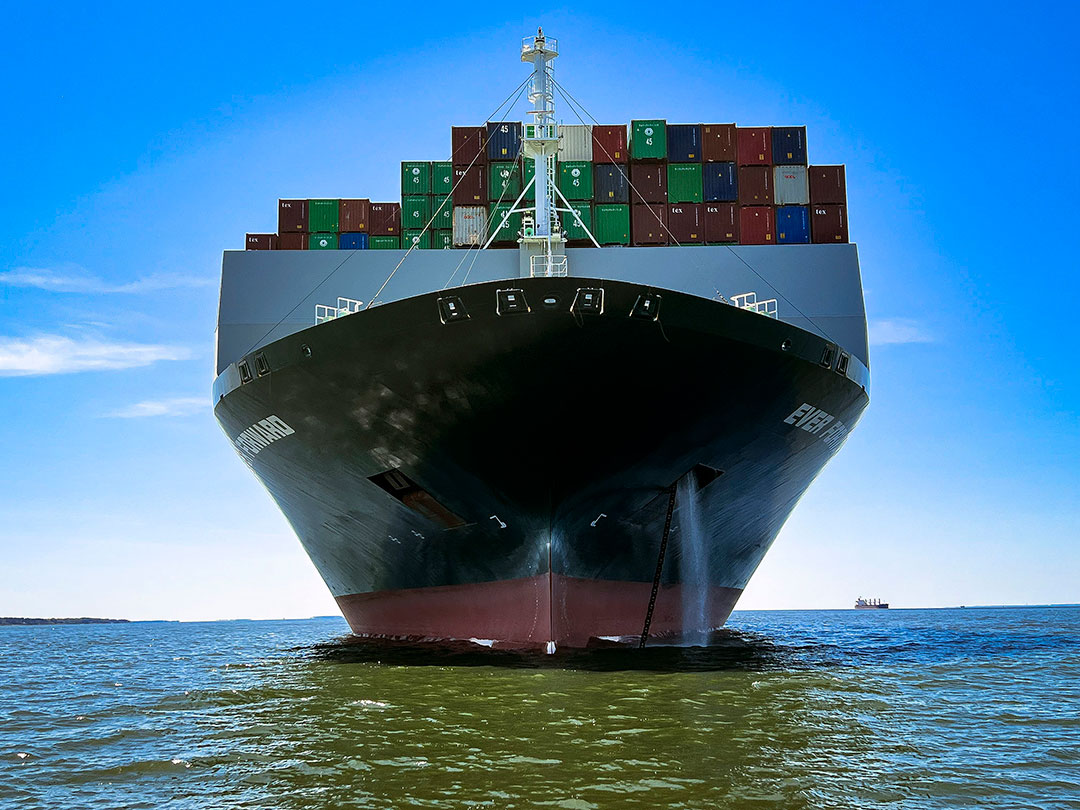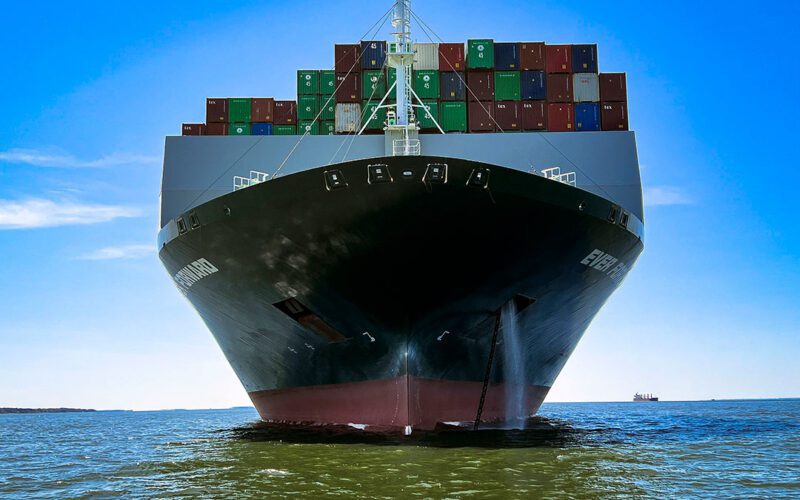
The pilot fiddled with his cellphone even as the big ship missed the turn. The third officer sang out their compass course as a clue they were going wrong. Others on the bridge did likewise as the tension mounted. The pilot acknowledged their direction and continued work with his phone.
Thus, the 1,095-foot containership Ever Forward went aground near Craighill Channel in the Chesapeake Bay on March 13, 2022, 121 minutes out of the Seagirt Marine Terminal in Baltimore and still many miles from its destination, Norfolk, Va.
The Maryland Board of Pilots has since issued an updated policy on the use of cell phones among pilots while on duty in Maryland waters. The guidance takes its place alongside others in the country restricting cell phone use to only what is necessary to pilot the ship.
“It makes clear and specific guidance about mobile phone usage,” said Joseph E. Farren, chief strategy officer at the Maryland Department of Labor. “The board was deliberate and wanted to make sure that legitimate and necessary uses were still available to the pilot. But certainly, any kind of personal usage is strictly forbidden.”
The U.S. Coast Guard report found the causes to be inattention and lack of situational awareness on the part of the pilot, partially caused by cell phone use. The pilot had been talking on the cell phone for more than 61 of the 121 minutes the ship been underway from Baltimore. Just before the grounding, he was composing a text on his phone and taking a screen shot of his Portable Pilot Unit (PPU), the report said.
Ever Forward remained grounded for more than a month on a bottom of mud and shell. Only on the third try, after using barges, dredges, a fleet of tugboats and a floating crane, did the ship come off on April 17, 2022. This was after cranes offloaded around 500 containers over several days and dredges brought up more than 100,000 cubic yards of material from around the ship.
“The Maryland board felt the need to emphasize what the Coast Guard says,” Clay Diamond, executive director and general counsel for the American Pilots Association (APA), said of the change. “If a pilot is using a cellphone, it should only be for navigational, operational, maritime safety, national security or other professional purposes. And even then, it should be kept to an absolute minimum.”
The pilot, Capt. Steven Germac, has been suspended from piloting operations and has moved for a hearing. He has not piloted a commercial vessel since the incident.
The ship returned to the Seagirt Marine Terminal on April 22 to pick up its offloaded containers and be inspected. The Hong Kong-flagged ship then continued its journey to Norfolk.
Authorities emphasized that the new policy is not a cellphone ban, but a clarification about acceptable practices with the devices, since cellphone use sometimes serves the purposes of navigation.
“We started looking into instances where (electronic devices) could have been part of an incident,” said Mike Breslin, director of safety and sustainability for the American Waterways Operators (AWO), an advocacy group representing the U.S. tugboat, towboat and barge industry, “and we found that oftentimes it was a call from the office or another ship, and might have had something to do with operations.”
Breslin described his own organization’s response to distraction in the wheelhouse, a concept the AWO calls The Sterile Wheelhouse.
The idea is that each operator decide when electronics like cell phones can be used on the bridge and when not, and if perhaps the devices could go into a “Faraday bag” that would block signals during sterile wheelhouse periods.
But not even a selective curtailment of cell phone use could completely solve the problem, Breslin said.
“I think we all agree that it’s a behavior we are trying to establish. It’s not that we want to rely on a bag to stop the signal. We are trying to develop a habit,” Breslin said.
With that in mind, Breslin said, the AWO has been working on a resource kit for new hires that will introduce the idea of distractions — including those from wheelhouse electronics and shoreside managers — and discuss how to accommodate them without ignoring vital information.
“We plan to have a report out this summer containing guidance on operational communications,” Breslin said. “How do we train our captains and shoreside managers to reduce the inputs (masters receive). We are setting up procedures to reduce the amount of distractions.”
Meanwhile, the Coast Guard continues to emphasize what it published in Marine Safety Advisory 01-10 on distracted operations.
“Distracted operations continue to be an issue of importance,” Kurt Fredrickson, spokesman for the Coast Guard, said in an email. “It is the responsibility of all mariners to ensure a robust safety culture that supports and communicates a safe bridge navigation watch and protects the safety of life at sea.”

